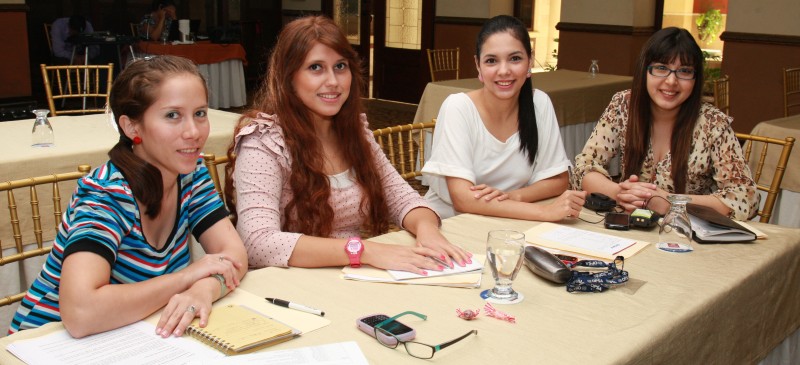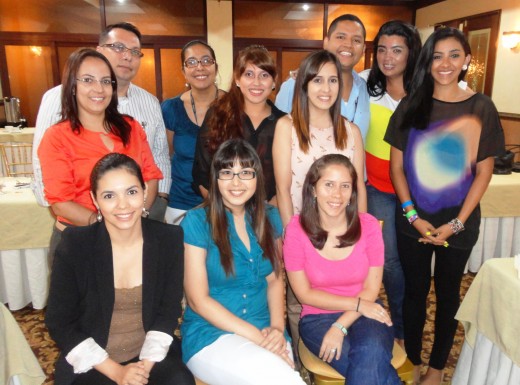
Reflections from Honduras
Dr. David Sumner, professor of journalism, recently traveled to Honduras to teach two days of writing workshops for the company writers of Grupo OPSA, a newspaper based in the Latin American country. The opportunity to travel to Honduras came as a bit of a surprise to Dr. Sumner.
“I received an e-mail from a friend in early 2012 asking if I was interested in traveling to Honduras to teach two days of writing workshops for the company’s writers,” said Dr. Sumner. “Of course was my immediate answer.”
This friend, Shirrel Rhoades of Key West, Florida, is a fellow co-author with Dr. Sumner on Magazines: A Complete Guide to the Industry (2006) and also serves as a consultant to the company who has advised it on the launch of some of its new magazines. A semi-retired New York magazine executive, Mr. Rhoades worked for several major magazines and launched a number of successful magazines during his long career in the industry.
“My trip came to fruition on Sept. 2, 2012, when I made the two-and-a-half hour flight to Miami followed by a two-hour flight to San Pedro Sula. During the flight, I caught some views of Cuban towns and countryside,” says Dr. Sumner. Grupo OPSA is a privately owned company that publishes the newspapers La Prensa, El Heraldo, El Ceibeno, El Progreseno, Diez and nine magazines. Most of the magazines have a circulation from ten to thirty thousand readers.
The workshops were held in the Clarion Hotel conference room, where Dr. Sumner stayed as a guest as well. “It had wifi, an indoor pool and all the conveniences of any American hotel,” said Dr. Sumner. During his stay, he taught a two-day schedule that included segments on finding story ideas, writing story titles and cover lines, interviewing tips, finding story angles, anecdotes, and how to write different types of feature and magazine stories. He also critiqued the content and cover design of several of Grupo OPSA’s magazines.
 Six of the 11 writers and reporters at the workshop worked at the San Pedro Sula headquarters, while the remaining five traveled from Tegucigalpa for the two days. About half spoke English. “We worked through a translator who sat at the back of the room giving Spanish translations through a wireless headset that the writers wore,” said Dr. Sumner. “When they asked questions, I heard an English translation through a headset I was also wearing.”
Six of the 11 writers and reporters at the workshop worked at the San Pedro Sula headquarters, while the remaining five traveled from Tegucigalpa for the two days. About half spoke English. “We worked through a translator who sat at the back of the room giving Spanish translations through a wireless headset that the writers wore,” said Dr. Sumner. “When they asked questions, I heard an English translation through a headset I was also wearing.”
The group’s translator was an American-born Peruvian woman who attended college in California before moving to Honduras years ago. “She was very good and often gave me valuable teaching tips during the breaks,” added Dr. Sumner.
“The students were great. They all had Smartphones and used the latest technology,” said Dr. Sumner. One of them even told me, “We’re very Americanized here. We listen to American music, go to American movies, and wear American fashion.”
Although Dr. Sumner would have liked to stay longer to enjoy some more of the native Honduran culture, it was an “in and out” trip without time for sightseeing. “At 5:00 a.m. on September 5th, a driver from Grupo OPSA met me at the Clarion hotel and took me to the airport,” said Dr. Sumner. “By 9:00 a.m., I was at the Miami Airport for a seven-hour layover, where I heard less English than I did during two days in Honduras.”



